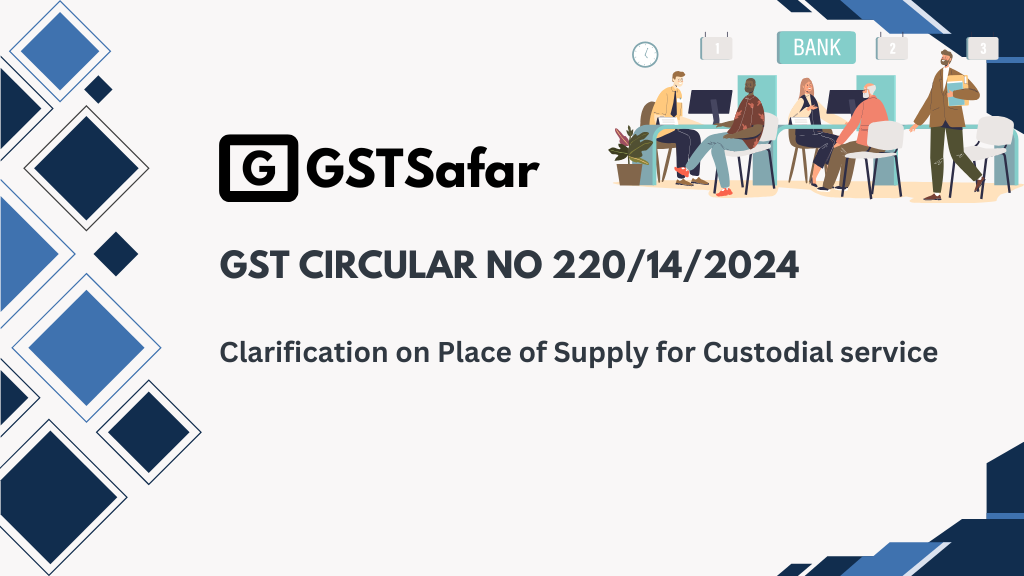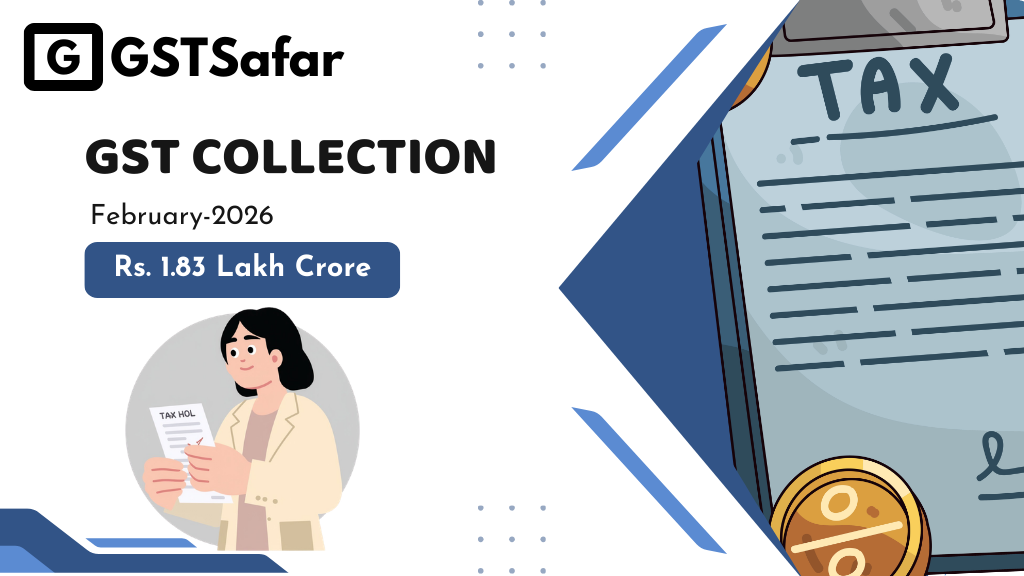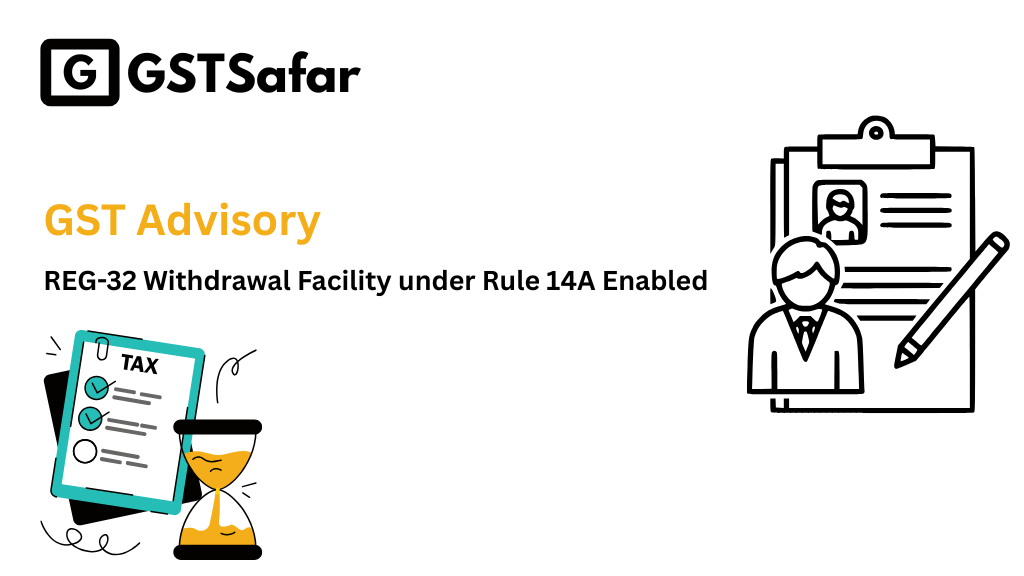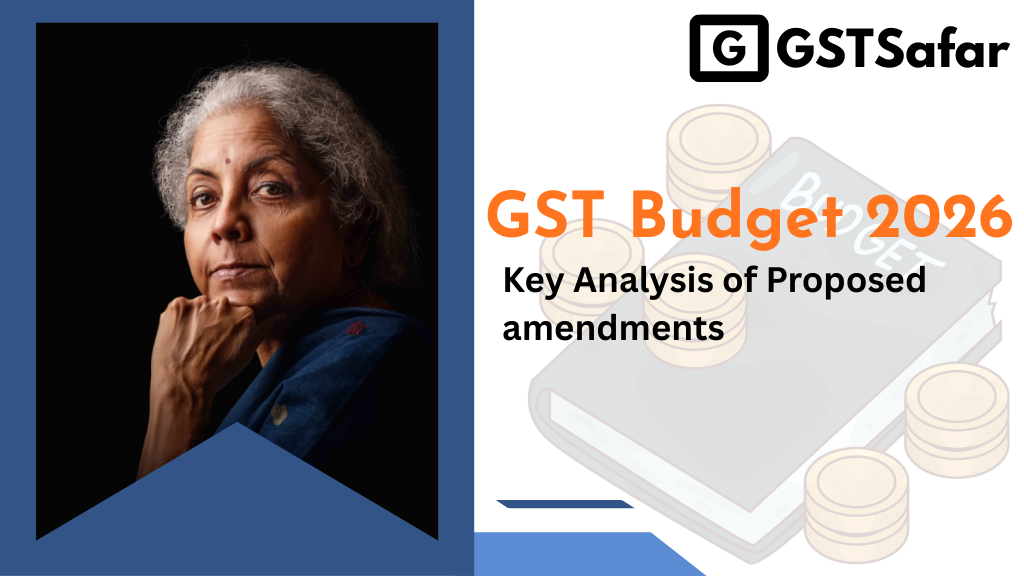Summary of Clarification on Place of Supply for Custodial service
Clarification on Place of Supply for Custodial service offered by Banks to Foreign Portfolio Investors (FPIs).Custodial service means services where banks manage and safeguard financial assets on behalf of FPIs.As per section 13(8) (a) of IGST Act, certain services like banking, financial and intermediary services, the place of supply is the location of the service provider evenif the recipient is outside india.Since the banks Providing these services are located in india , the officers believe that the place of supply for these custodial services should also be india which makes them Subject to GST.The clarification is issued to remove confusion and standardize the process.
Issue: Whether the activity of providing Custodial Services by banks or financial institutions to FPIs will be treated as services provided to ‘account holder’ under Section 13(8)(a) of the IGST Act, 2017? Further, how the place of supply of the said services shall be determined?
Clarification :
As per SEBI, Custodial service means safekeeping of client ‘s securities and providing related services.It includes :
- maintaining accounts of securities of a client;
- Collecting the benefits or rights accruing to the client in respect of securities;
- keeping the client informed of the actions taken or to be taken by the issuer of securities, having a bearing on the benefits or rights accruing to the client; and
- maintaining and reconciling records of the services referred above.
As per SEBI, FPI is allowed to invest only in following securities:
(a) shares, debentures and warrants issued by a body corporate; listed or to be listed on a recognized stock exchange in India;
(b) units of schemes launched by mutual funds under Chapter V,VI-A and VI-B of the Securities and Exchange Board of India (Mutual Fund) Regulations, 1996;
(c) units of schemes floated by a Collective Investment Scheme in accordance with the Securities and Exchange Board of India (Collective Investment Schemes) Regulations, 1999;
(d) derivatives traded on a recognized stock exchange;
(e) units of real estate investment trusts, infrastructure investment trusts and units of Category III Alternative Investment Funds registered with the Board;
(f) Indian Depository Receipts;
(g) any debt securities or other instruments as permitted by theReserve Bank of India for foreign portfolio investors to invest in from time to time; and
such other instruments as specified by the Board from time to time.
Various banks enter into custodial agreements with the Foreign Portfolio Investors (FPIs) for the provision of such custodial services. The main activity carried out by banks as a custodian in relation to custodial services is maintaining account of the securities held by the FPIs.
If Banking company, Financial Institution or NBFC provides service to an account holder, the place of supply will be the location of the service provider. As per explanation of section 13(8) (a) of CGST Act, Account must generate Interest for the person holding. It also includes special accounts for Non-residents such as NRE account and NRO account.For service related to Interest bearing accounts, the place of supply is where bank or service provider is located.
Custodial service do not fall under the account holder category and may require different tax treatment. The Education guide under the service tax law clarified the scope of term account holder ” and the services provided by banks to account holders as well as the services which are not provided to account holders, as below:
Account” has been defined in the rules to meanan account which bears an interest to the depositor. Services provided to holders of demand deposits, term deposits, NRE (non-resident external) accounts and NRO (non-resident ordinary) accounts will be covered under this rule.
Following are examples of services that are provided by a banking company or financial institution to an “account holder”, in the ordinary course of business :-
i) services linked to or requiring opening and operation of bank accounts such as lending, deposits, safe deposit locker etc;
ii) transfer of money including telegraphic transfer, mail transfer, electronic transfer etc.
Following are examples of services that are generally NOT provided by a banking company or financial institution to an account holder (holder of a deposit account bearing interest), in the ordinary course of business:
i) financial leasing services including equipment leasing and hire purchase;
ii) merchant banking services;
iii) Securities and foreign exchange (forex) broking, and purchase or sale of foreign currency, including money changing;
iv) asset management including portfolio management, all forms of fund management, pension fund management, custodial, depository and trust
services
In the case of any service which does not qualify as a service provided to an account holder, the place of provision will be determined under the default rule i.e. the Main Rule 3. Thus, it will be the location of the service receiver where it is known (ascertainable in the ordinary course of business), and the location of the service provider otherwise.”
Accordingly, as per clarification given in Education Guide under Service Tax Regime, the custodial services are not considered to be covered under the services provided by bank to account holders, but have been considered to be covered under the services which are not provided to account holder.
As the provisions of section 13(8)(a) of the IGST Act are similar to the provisions of Rule 9(a) of the Service Tax Place of Provision of Supply Rules, 2012, the clarification given in the Education Guide under Service Tax Regime is equally applicable under GST Regime.
Accordingly, it is clarified that the custodial services provided by banks or financial institutions to FPIs are not to be treated as services provided to ‘account holder’ and therefore, the said services are not covered under Section 13(8)(a) of the IGST Act. Therefore, the place of supply of such services is not to be determined under Section 13(8)(a) of the IGST Act but has to be determined under the default provision i.e., sub-section (2) of section 13 of the IGST Act.
Download – Circular No 220/14/2024









